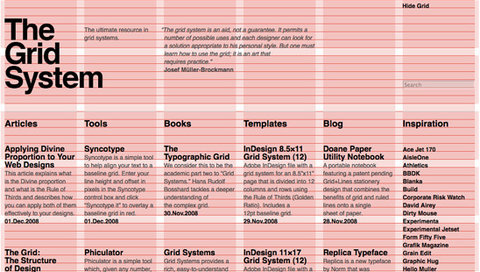- Grid is a design of rows and columns or table format for the matter to convey in systematic manner.
Grid Terminology:
- Gutter: The gutter is the space between columns.
- Column Inch: One column inch is one inch of vertical space by one column wide.
- Jump: When items flow from one column to the next it is called jump.
- Rail: The column which is off the page grid is called a rail.
- Modular Grid: A modular grid uses less of a vertical format and allows designer to package text and images in rectangles.
Develop a Grid template:
- Grid development can be done in few minutes using built-in software tools.
- Programs such as Adobe In Design will allow to create a grid template that can be used for project.
Why Grid Design?
- Clarity: Grids bring order to a layout making it easier for visitors to find and navigate through information.
- Efficiency: Grids allow the designers to quickly add elements to a layout because many layout decisions are addressed while building the grid structure.
- Economy: Grids makes it easier for other designers to work and collaborate the design as they provide a plan for where to place elements.
- Consistency: Grid lead to consistency in the layout of pages across a single site or even several sites creating a structural harmony in design.
Notes:



